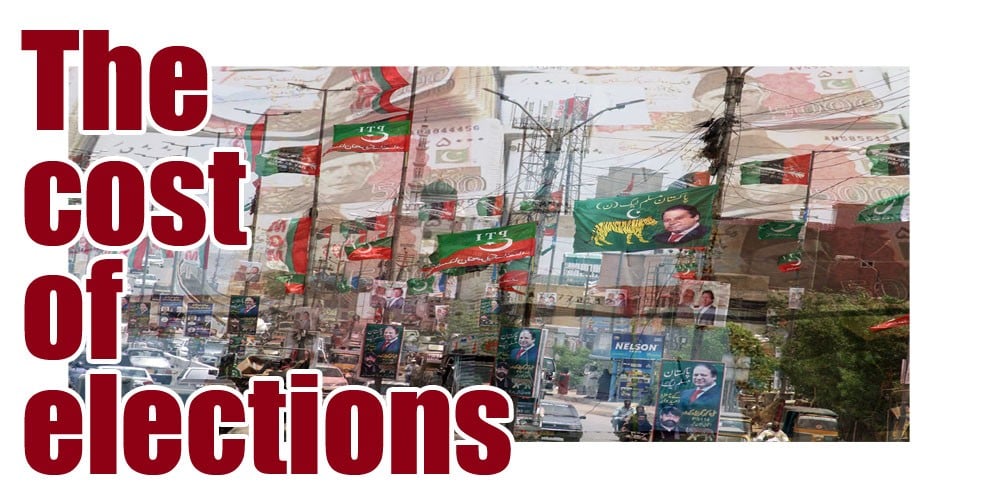

A newspaper this week carried an interview of Imran Khan, chairman Pakistan Tehreek-e-Insaf (PTI) on its front page. His party can rightfully claim to have dominated the country’s political discourse in the last five years, directed largely at the corrupt political class. Having managed to oust the sitting prime minister and head of the ruling party on charges of ‘corruption’, Khan has every reason to eye the prime ministerial seat.
In this particular interview, he claims to have accepted the role of money and so-called electables in winning the election. Actually, he said, he had realised this before the 2013 election. In this election, he seems to have perfected the art of drawing moneyed people to his fold. Most people whom he’s given tickets this time to contest election have changed their party loyalty, but Khan sees this as the only way to subvert the system, so to speak.
In today’s Special Report, less than twenty days before the general election 2018, we at The News on Sunday have focused on the cost of contesting election. Our intent is not to prove how most people who spend more money end up winning the election because that is too obvious. We want to develop an understanding about how this spending is a reflection of a weak political system, especially the political parties, and how impossible it is to build a strong political structure on such feeble foundations.
How can we expect any change when an entire election is being bought and sold, and there is no level playing field available to candidates?
We may have focused only on expenses incurred on the campaign but money in election cannot be disconnected with money in politics. How can anyone be expected to put faith in democracy with this kind of a start where money is seen and believed to be the only winner long before the contest actually takes place?
Read also: The cost of elections
Except, perhaps, for the first general election held in this country in 1970, all subsequent polls have favoured the moneyed class, and increasingly so each time. This class inevitably wants to be in the assemblies not to serve the people but to multiply its wealth. Seen in this light, the danger to democracy is as much from inside as outside. And this election does nothing to counter that. That is the most unfortunate part. The sooner the political parties realise this, the better it is for them and the system.